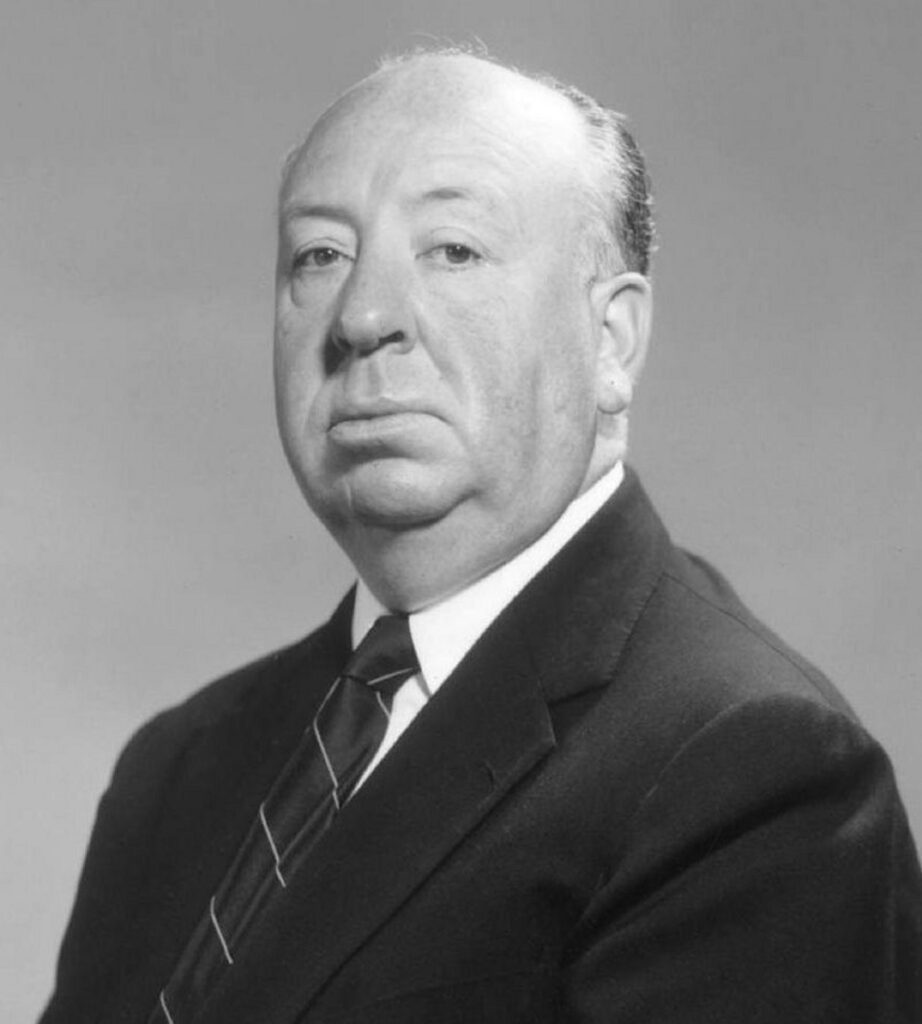Alfred Hitchcock is arguably one of the most well-known directors in the last century. Born Aug. 13, 1899, the English film director created more than 50 movies before he passed away in 1980. There is no denying that he changed the way audiences watched films — for example, Hitchcock demanded specific start times for “Psycho,” and audiences were asked to not give away the end of the movie.
Hitchcock may have never won an Oscar for best director, but in honor of his birthday, we’ve outlined 10 reasons as to why Hitchcock will always be one of the best directors.
Visual Storytelling
Hitchcock started out as a silent film director, so he was always finding ways to add information to his films. The practice led to constant innovation of storytelling, which is something that Hitchcock maintained throughout his film career.
Mise-en-scène
A mise-en-scène is a term for a group of elements that composes a shot. While the audience may not pay attention to all the elements in a particular shot, the combination of elements helps the audience dive into the film’s story. Hitchcock used mise-en-scène to build suspense, climax, curiosity and the likeness of his characters.
Themes
Hitchcock liked to focus on themes that revolved around obsession and morale. Among other elements, sub-themes in Hitchcock’s movies included voyeurism, authority, death, sexuality, guilt, and family. He used these sub-themes to add depth to his storytelling and build strong relationships with the audience.
Scriptwriting
Through innovative scriptwriting, Hitchcock was able to exercise control over the audience. He would often put an emphasis on psychological characterization of his main and secondary characters. In his films “Rebecca” and “Shadow of a Doubt,” he uses voice over for the opening sequences to cast a gloomy and mysterious shadow over the entire film.
Use of Music
Hitchcock was very specific about how he used music in his movies, whether it was to create excitement, heighten tension, or build toward a climax. Even his characters are fascinated by music, and, as the New York Times’ Edward Rothstein points out, it can be argued that music itself functions at the level of a character in Hitchcock films.
Film Editing
Hitchcock believed that film editing could only do so much for a film. But if you cut the scene correctly, used the right music, and the mood was set correctly through storytelling. Some of the best film editing done by Hitchcock can be seen in “Rope,” “Under Capricorn,” and “Sabotage.”
Actors’ Performances
Hitchcock held the actors’ performances in high regard, yet is known to have been a very controlling and visionary director on set, allowing little time or room for input from his actors. A very particular director, Hitchcock famously did not set much stock in method acting or improvisation and kept a tight reign on the action on set. He was also known to frequently collaborate with the same actors.
Keep the Story Simple
Simple, linear stories allow the audience to easily follow along. Removing excess material and keeping each scene crisp was essential for Hitchcock. He knew that a confusing or abstract story would bore the audience, and streamlined his films to maximize suspense.
Contrasting Situations
Hitchcock loved to build tension into a scene by using contrasting situations — two unrelated things happening at once. When an audience focuses on one event that is building momentum, another interrupts. The second event is usually a meaningless distraction, meant to throw the audience off. One example is in Hitchcock’s 1956 film, “The Man Who Knew Too Much.” Jimmy Stewart and Doris Day are in the middle of a tense phone call when guests, who are laughing and joking, start to arrive. The arrival of the joyful guests serves as a foil and complication for the real momentum of the scene.
Camera Movement
Camera movement is one component that supports visual storytelling, but it’s important to note why Hitchcock valued it so much. He believed that the camera should take on human qualities: it should roam and playfully look around the room for anything important.
By panning a room and showing close-ups of objects, the camera allows the audience to see certain plot elements and feel like they’re involved in uncovering the story. The importance of camera movement stemmed from Hitchcock’s days of working in silent film. Without sound, directors relied heavily on ways of telling the story to the audience visually.
Happy birthday Alfred Hitchcock! Do you have a favorite movie directed by Hitchcock? What are some reasons for watching his films? Let us know below!

